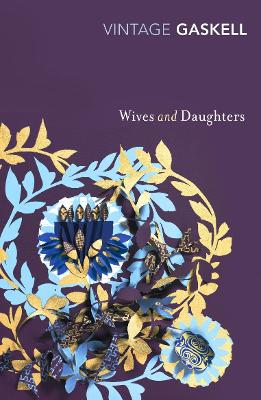Reviewed by nannah on
Secondly, I can't believe I didn't know Elizabeth Gaskell died before finishing this book??
So to prevent anyone else from feeling the same pain I felt after reading one of the cutest chapters I've ever read and then seeing . . . nothing but tragic news I'm putting this right up at the top of my review.
Book content warnings:
racism
antisemitism
manipulation/abuse/whatever you'd call how Mr. Preston used Cynthia
This has always been one of my favorite English "period dramas" that one of my friends introduced me to. Of course I've never actually read the original book until now (thanks to a reading challenge, mostly). But I'm surprised how much I liked Elizabeth Gaskell's writing and characterization. People and places have so much life to them. I would've rated this much higher if not for the racism. "But think of when it was written!" Yeah, okay, but it's still gross--and it makes me uncomfortable enough to make me like the book/author less.
I never know what to say about these Classics because I'm not what you'd call an ""intellectual"", and I'm not the best at the academic language that seem to fill their review pages. But I see a disturbing amount of people talking about how Cynthia manipulated and took advantage of "simple" and good-natured Molly, and while she may have taken advantage her, people are ignoring Mr. Preston in this entire equation (or are even saying Mr. Preston is the victim in his affair with Cynthia as well?).
It may have been an awful scandal on Cynthia's part back in the 1800s, but dang, if Cynthia's situation had taken place today, she might have been better understood. Her childhood shaped her entire character (and I'm about 200% sure she's aromantic from her own words, shaped by trauma or otherwise--she even gets a happy ending with someone who understands her, which is fantastic for someone who'd like to read a novel with great aro rep). Cynthia tries to explain to Molly that her mother's negligence has hurt her so much so that it's pretty much traumatic. No, it's not an excuse for some of her . . . not-so-great actions to Molly, but she might have been better understood where Mr. Preston is concerned because he pretty much took advantage of her when she was penniless and in a very low point in her life. He gave her money, as a gift from a friend, and then later persuaded him to marry him because of his gift.
"But she liked him then!" Yeah, okay, but she was a child, as she said. That he should later blackmail her and hold her letters over her is basically proof that he's one hell of a skeevy character. I can't believe I see reviews that basically state "poor Mr. Preston," or something like that. Or "that flirt Cynthia used Mr. Preston and Roger and Molly!" without ever taking Cynthia's perspective into question, and it just makes me seethe.
So . . . that aside, it's just one example of how the characters in this book are so fully fleshed and individual without being caricatures. They're so different from each other (like Cynthia from Molly), but still love and accent each other enough so that they work well together. It's also probably my favorite thing about this book (besides how it handles grief).
Reading updates
- Started reading
- 12 October, 2016: Finished reading
- 12 October, 2016: Reviewed
